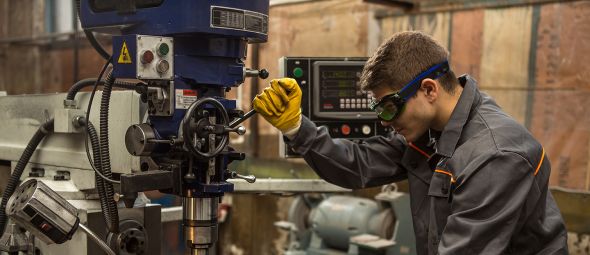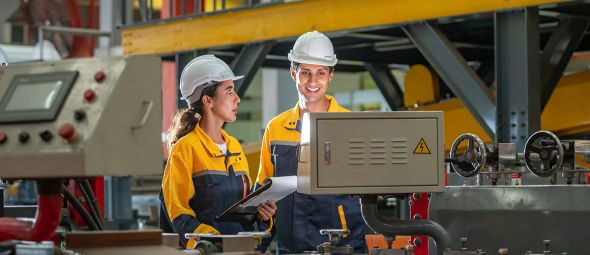Job Quality and Employer Practices: Evidence from B Corporations
A new WorkRise report explores how employer practices related to job quality differ between certified B Corporations and similar firms, revealing insights into worker benefits, firm outcomes, and strategies to improve job quality.
Read full report
A new WorkRise report explores how employer practices related to job quality differ between certified B Corporations and similar firms, revealing insights into worker benefits, firm outcomes, and strategies to improve job quality.
Grantmaking and Partnerships
Led by a cross-sector Leadership Board that is ideologically diverse and representative of often-siloed groups, WorkRise invests in research on policies, programs, and practices that have the potential to accelerate economic security and mobility for low-wage workers. We fund analyses and the creation of data that shed light on labor market barriers, trends, and opportunities. And we engage in strategic partnerships that help advance evidence-based solutions in support of our mission. Learn more about our most recent request for proposals and how you can collaborate with WorkRise.
The Latest
In Depth

Economic context, Care work, Scheduling
Feature
Last updated on October 24, 2024
Segregation in the Low-Wage Workforce
Over the past 50 years, the composition of the low-wage workforce has changed: more than half of low-wage workers are now people of color, up from just 20 percent in 1971. Today, Black, Latino, and women workers are more likely to be segregated into worse-quality and lower-paying jobs.
WorkRise Research
The Latest

Employer practices
July 18, 2023
Article
New Evidence to Advance the Moral and Business Case for DEI in the Workplace
Three takeaways from WorkRise’s recent virtual gathering of experts and advocates distill the latest evidence on the importance of DEI in the workplace and lift strategies for companies seeking to foster equity.

Economic context, Young workers
June 01, 2023
Article
Young workers’ economic mobility has improved since the start of the pandemic, but work remains to solidify these gains
Research shows that young workers have seen significant gains in their employment prospects since the onset of the COVID-19 pandemic.

Skills and training
June 09, 2023
Changemaker Q&A
Shifting Narratives and Policies to Support Black Workers’ Advancement: A Q&A with Bill Spriggs
Shifting focus away from skills gaps and worker shortages requires business, policy, and academic leaders to consider different solutions a shift away from individual failings to systemic inequities.

Skills and training, Care work, Support during upskilling
May 10, 2023
Article
Strategies for Success: Investing in Child Care and Employer-Led Workforce Development
The US needs greater investment in workforce development that aligns with what local employers needs, notes Cheryl Oldham, who leads workforce and education programs at the US Chamber of Commerce Foundation.

